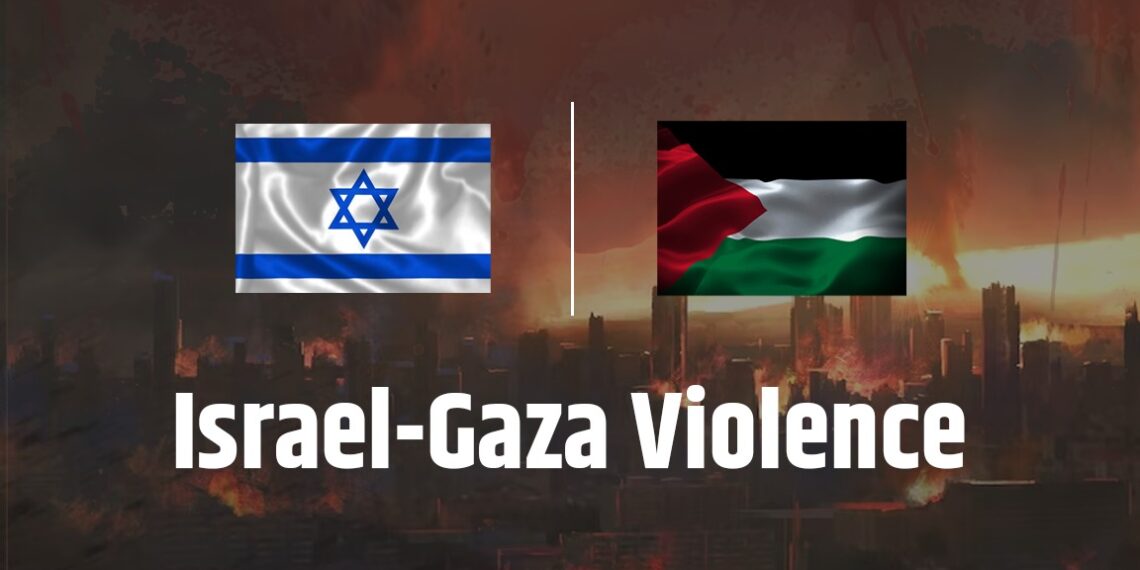The violence in Israel and Gaza has entered the sixth day after the deadly attack by Hamas over the weekend. The violence has claimed more than 2,500 lives on both sides according to AP reports. An Israeli minister has announced a complete siege of the Gaza strip, cutting supply of fuel, electricity and water till hostages are not freed.
The casualties are causing devastating blows to both sides, leading to a humanitarian crisis of unprecedented magnitude especially in Gaza. Popularly called an “open air prison”, more than 2.2 million people live in just 365 sq km of Gaza, a strip of land wedged between Israel to the north and east, Mediterranean Sea to the west and Egypt to the south. Gaza has been under an air, land and sea blockade since 2007, after the second Intifada of 2000-2005.
One of the most densely populated and impoverished regions in the world, this blockade has dealt a severe blow to Gaza. According to a report by the United Nations Office for the Coordination of Humanitarian Affairs (OCHA) from 2022, said that this blockade is “limiting access to medical treatment unavailable in Gaza, to higher education, to family and social life, and to employment and economic opportunities” of the Palestinians.
It further added, “Longstanding access restrictions imposed by the Israeli authorities have undermined Gaza’s economy, resulting in high unemployment, food insecurity and aid dependency.”
This latest cycle of violence will further cripple the economy of the region, pushing more people into poverty. The longer this violence lasts, the more severe the economic impact might be for Israel. More than 3 Lakh people have been called in to make up the reserve force in Israel. This includes tech workers, entrepreneurs, teachers, factory workers and teachers among others. The conflict may halt the economic activities for some time even as most of its key industries are run by foreign workers.
How will it affect the world economy
The world which is already reeling under the impact of the Ukraine-Russia conflict, with fears of a possible global recession, this recent violence further threatens economic stability. Condemning Hamas’ offensive into Israel on Saturday, US Treasury Secretary Janet Yellen during an annual meeting of World Bank and the International Monetary Fund in Morocco’s capital Marrakech, said that these attacks posed additional risks to an already tepid global economic outlook.
According to a report, the IMF, World Bank and Morocco’s finance minister in a “Marrakech Proclamation” said, “The world has become more shock-prone, with increased risks to growth, development, jobs, and living standards that widen inequalities within and across countries.” It further said, “We need to stand together, united in the goal of protecting our future prosperity and ending extreme poverty.”
Speaking to Bloomberg Television, IMF’s First Deputy Managing Director Gita Gopinath said, “If it turns into a wider conflict and that causes oil prices to go up, that does have an effect on the economies.”
In its latest monthly oil market report, International Energy Agency (IEA) has said that the oil markets would remain on tenterhooks with the Israel-Gaza conflict even though there hasn’t been any physical impact of it on the supply.
Impact on India
Crude oil prices may increase as a result of the Israel-Gaza violence that is a cause for concern for India which is heavily dependent on oil exports. This also increases the threat of inflation if oil prices skyrocket, that is already a matter of concern for many economies globally. Analysts believe that there might be an adverse impact on India’s fertilizers, organic chemicals, iron and steel sectors due to a possible disruption on trade routes that would affect the supply chains.
Prime Minister Narendra Modi spoke to Israel’s Prime Minister Benjamin Netanyahu on October 10, extending his support to the country. Taking to X, PM Modi posted, “I thank Prime Minister @netanyahu for his phone call and providing an update on the ongoing situation. People of India stand firmly with Israel in this difficult hour. India strongly and unequivocally condemns terrorism in all its forms and manifestations.”








